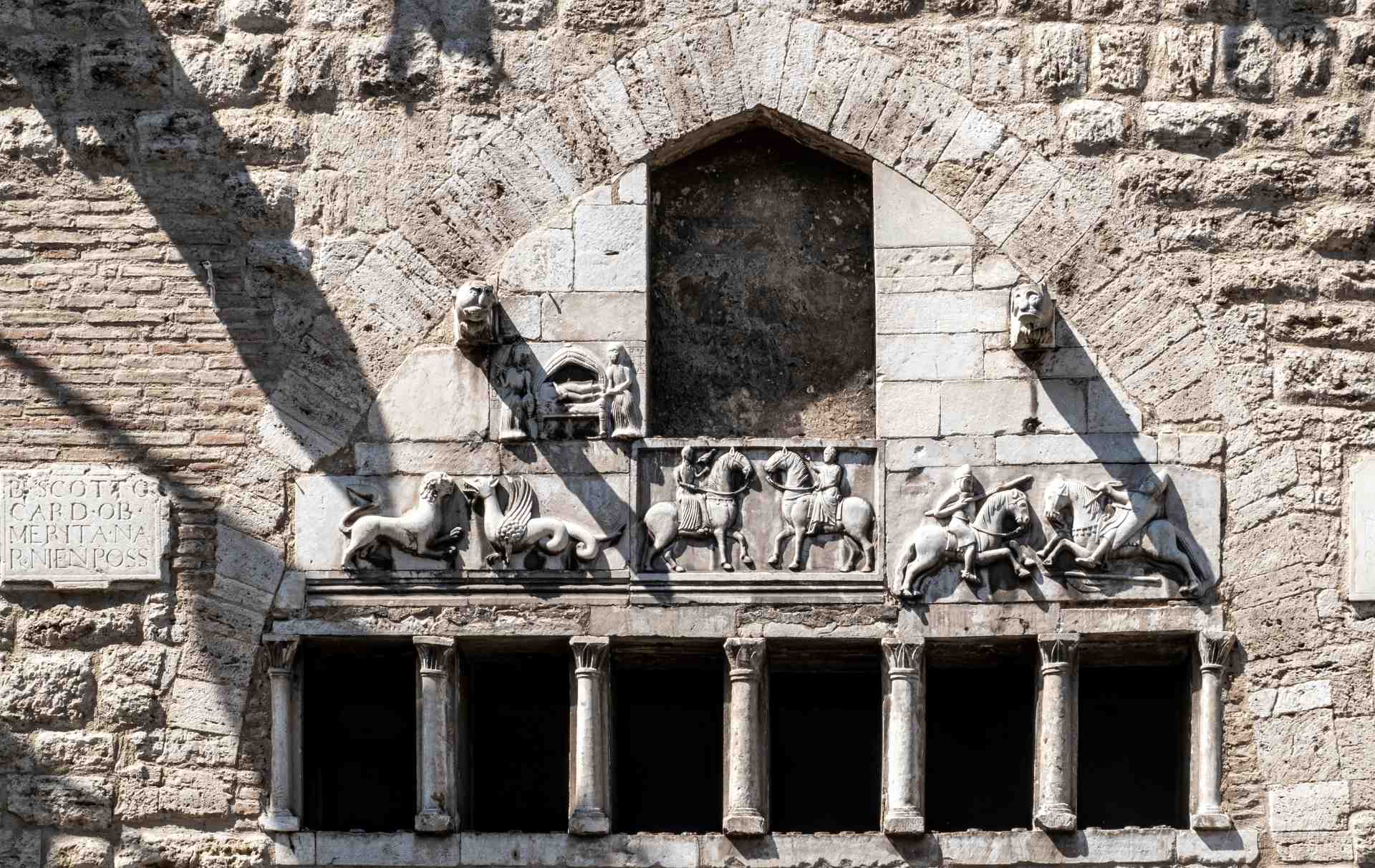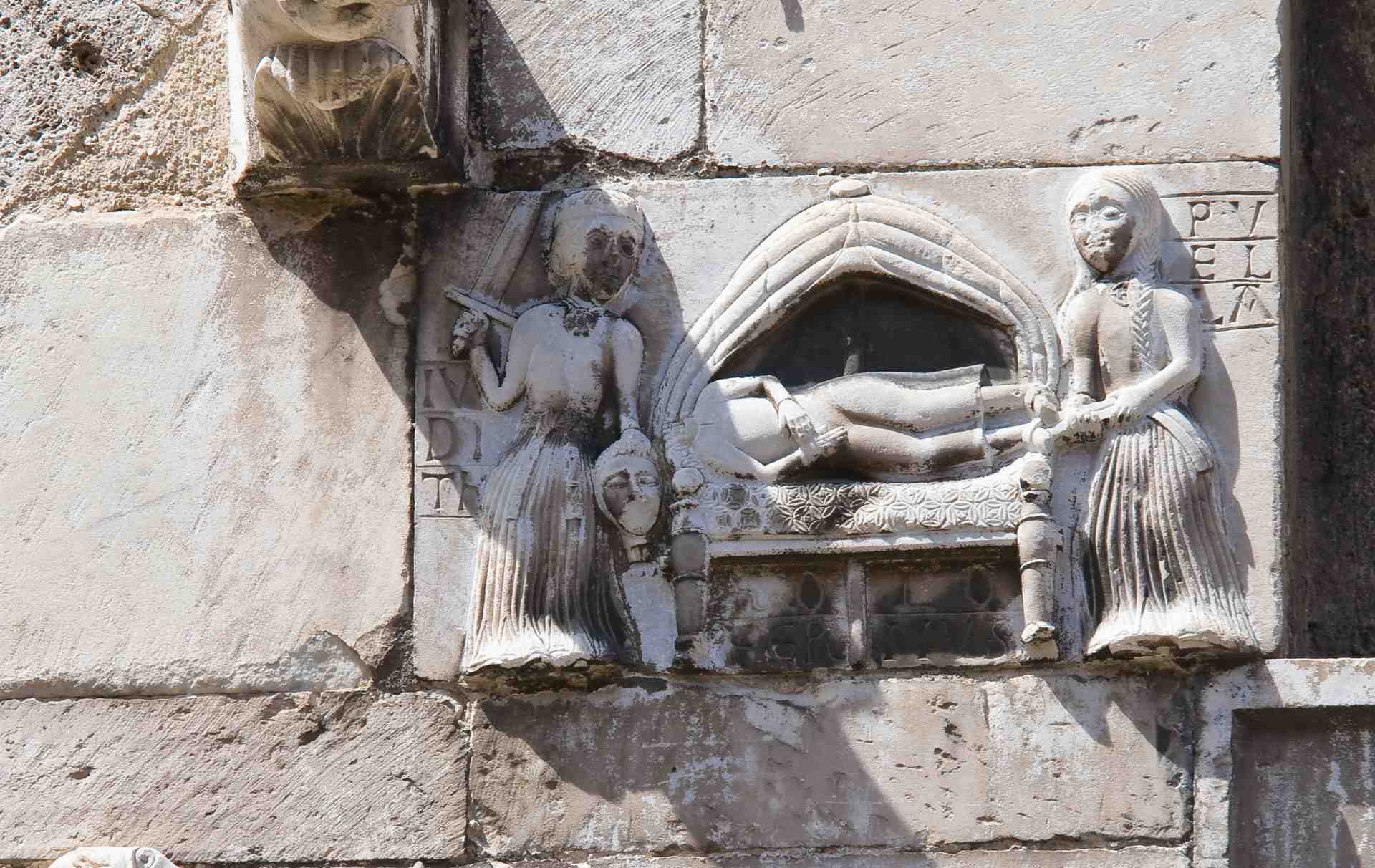The Municipal Palace, is in front of Priori Palace and, with its mole, the homonymous square in the center of Narni.
The Podestà Palace, today headquarter of the Municipality.
Placed on the area that was of the roman forum of Narnia, was built, purchasing in 1273, as it is reported in a document preserves in historical archive of the municipality, three houses-towers places in what before was the parish of San Salvato, belonging to the noble Sinibaldo di Sinibaldo, to Giovannuccio di Simonzone and Giovanni Andrea, and to the knight Tommaso di Matteo Oddone.
Different were the works that, between the 1300 and 1400, made the building, the structure that we can admire today as a symbol of the pride of Narni.
The facade of the palace is decorated by sculptures, tombstones and friezes, which remember illustrious chapters of the past, it is characterized by particular cross windows. Different are the attributions: or to the architect Bernardino from Settignano called Rossellino, who the Vasari reports in Narni to direct the restore works of the Fortress in 1449; or the architect from Narni Nuccio de Risis who works even for the Pope Paolo II between 1455 and 1470 in Rome where we can find the same windows in Palazzo Venezia of the same period.
Watching the facade we can notice the ogival doors – today walled – which faced the entrance to the palace , which is today through an ashlar portal, renaissance work.
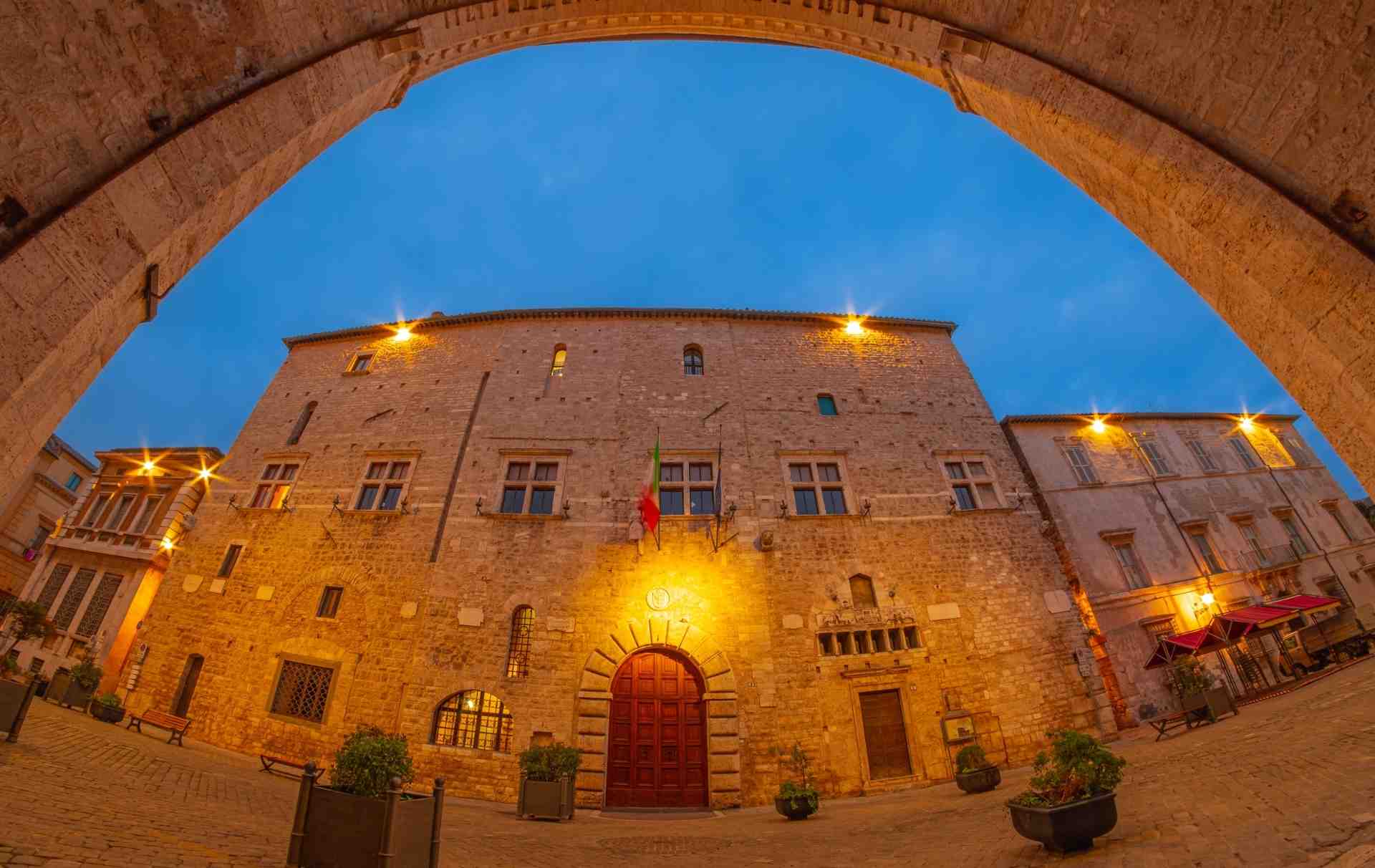
The right portal and the recovery materials of the Church of San Salvato.
On the right of the entrance door, a little door, overlooked by an ogival old door, today walled, with bas-reliefs and a fake little loggia, gives access to the Tourist-point.
This opening is the entrance of what was in the past the Chapel of the Santissimo Salvatore which went to replace the ex Church of San Salvato, placed close to the Fountain of Piazza dei Priori.
The bas-reliefs of the XIII century, including that one particularly representing the episode of Giuditta and Oloferne and Jousting Knights and Falcon Fighter, were walled as recovery materials by the abolished parish of San Salvato.
The atrium of the Municipal Palace.
The renaissance entrance introduces into the suggestive atrium made by the transformation of the central tower.
The inside yard, overlooked by a splendid stairs which takes to the noble floor, preserves a series of roman and medieval remains including: a roman burial from the Via Flaminia; some medieval fregios which come, probably, from the ex Church of San Domenico, and from the underground of the Church of Santa Maria Impensole.
At the base of a square pillar, the bust of the Italian philosopher, astronomer, mathematician, Giordano Bruno.
The Council Chamber.
Going up the stairs you arrive in the Council Chamber, in which atrium, are represented the castles which belonged to Narni from 1860.
In the big room, in addition to the frescoes of the most Narni’s illustrious – today none more visible – and those of San Francisco , was preserved until 2007 the Coronation of the Madonna of Ghirlandaio which occupied all the back wall, today preserves and visible in the art gallery of Eroli Palace.
The Theater of the Palace.
The last floor preserves today the remains, under restoration, of a Theater of the Palace in baroque style.
The work is the results of different interventions which, from the second half of the XVI century , until the 1740 , have given the shape of an italian theater: the structure was abandoned around the half of 1800 when it was built and inaugurated the Municipal Theatre Giuseppe Manini.
Municipal Palace
Piazza dei Priori, 1 – 05035 Narni
City Hall
Phone: 0744 7471
It is possible to visit the atrium of the Municipal Palace during the day.
To reach the Municipal Palace and the old town of Narni it is suggested park the car into the Suffraggio Parking and go up with the elevator until via Garibaldi and then reach piazza dei Priori.
Discover Narni.
Continue to walk with us discovering what to see inside the walls of Narni.
Or discover the points of interest of Narni and of its territory:
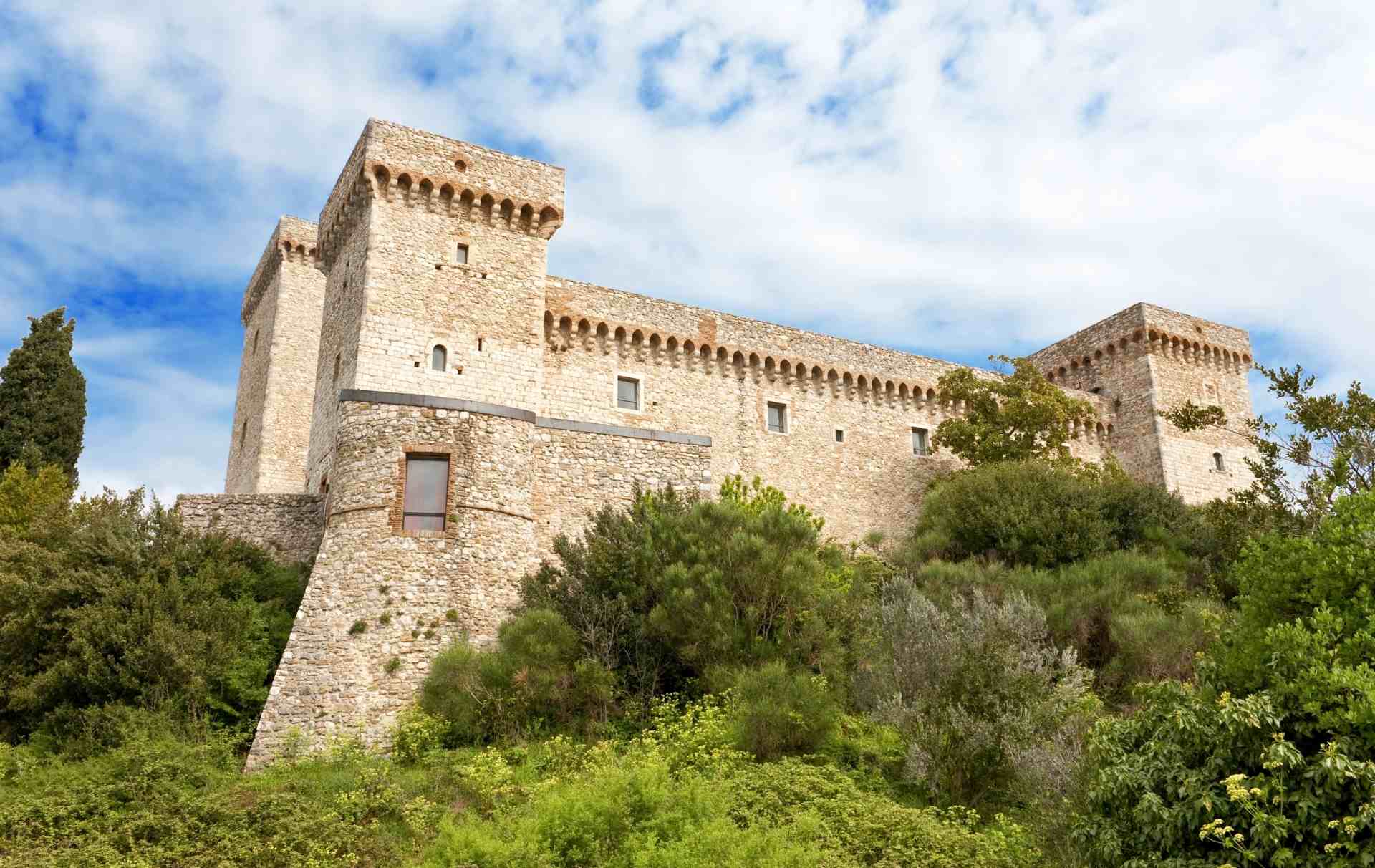
Albornoz Fortress
The Albornoz Fortress, surrounded by a green nature, rises as a giant on the Maggiore mountain to dominate the Town of Narni , the via
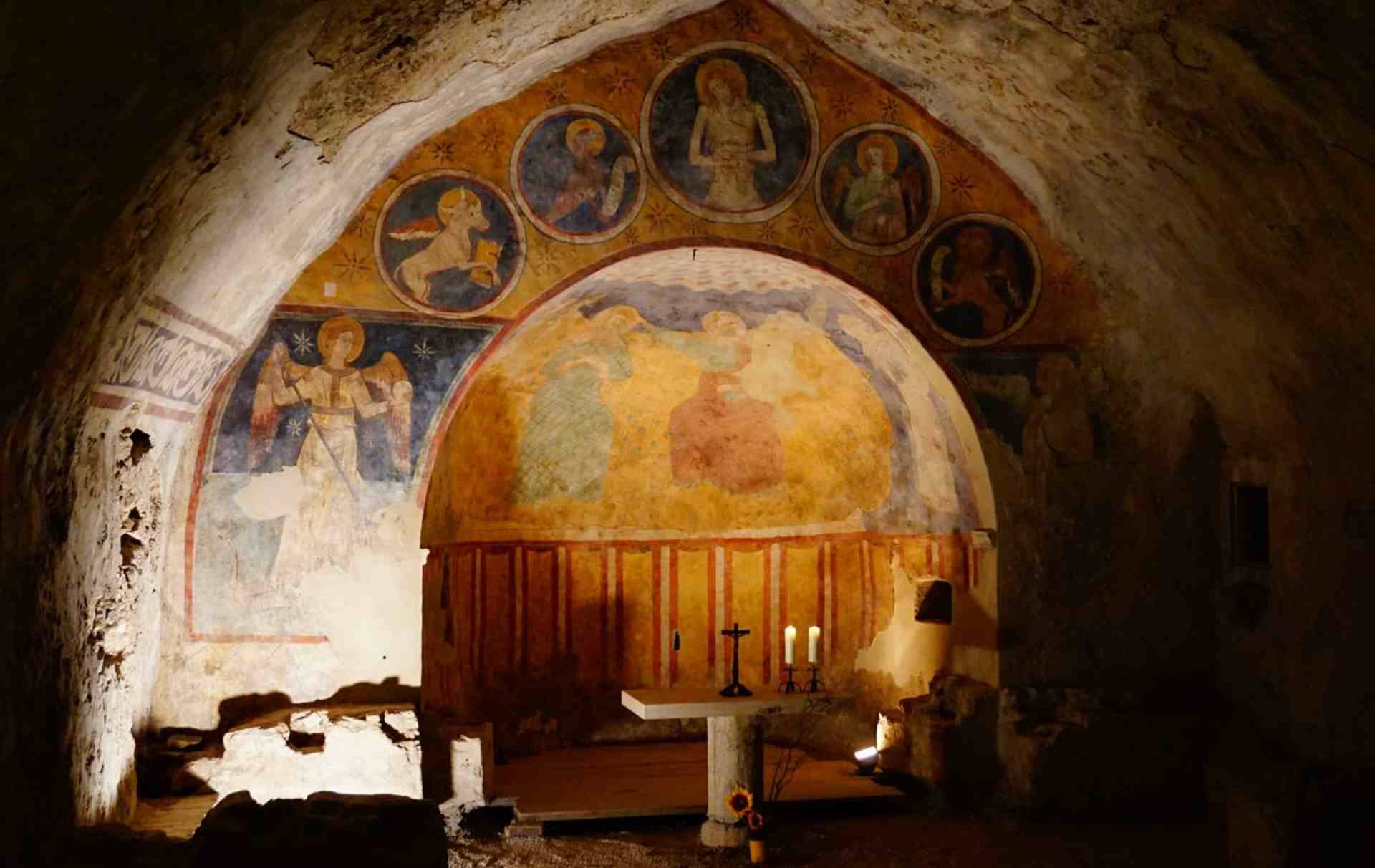
Narni Underground
More than a complex of churches and hypogeal ambience, Narni Underground is a story: the history of its incredible discovery in 1979 and the events
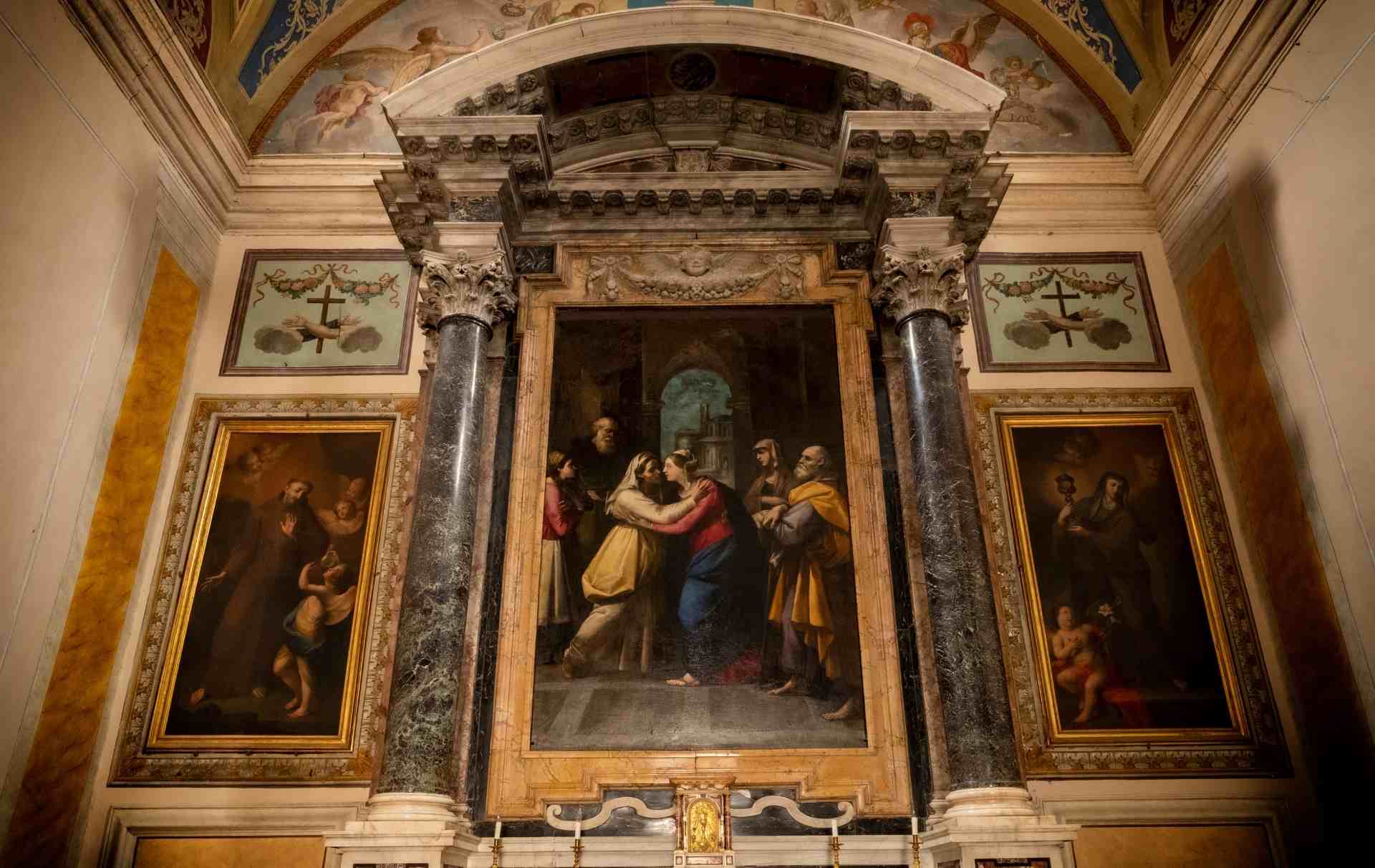
The Church of Santa Restituta
The charming Church of Santa Restituta is meeting going down through Via Mazzini before Piazza Galeotto Marzio. The Church of Santa Restituta and the Monastery

